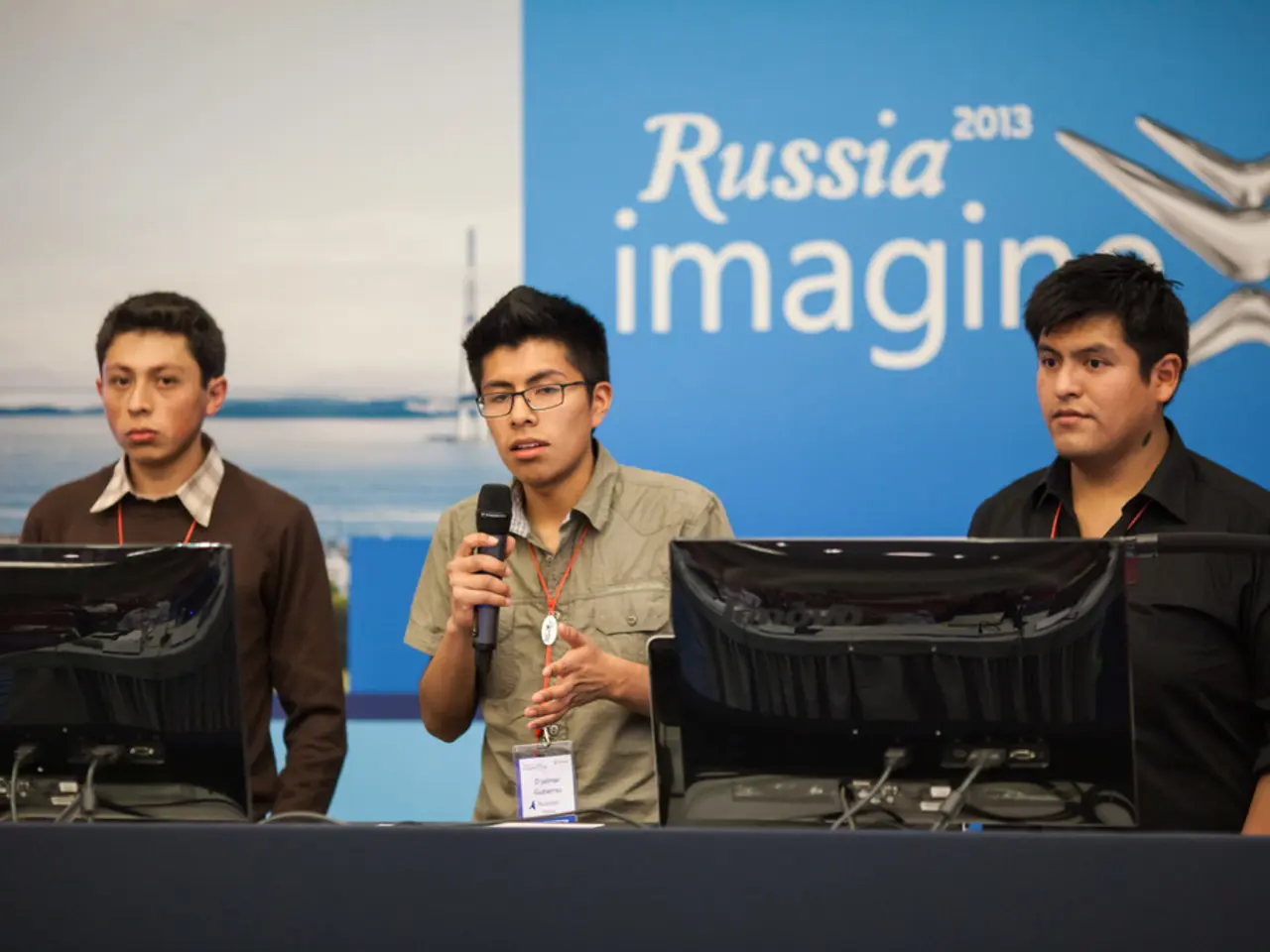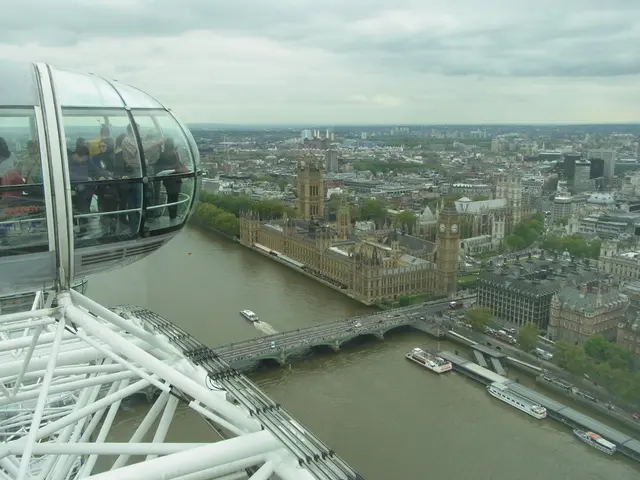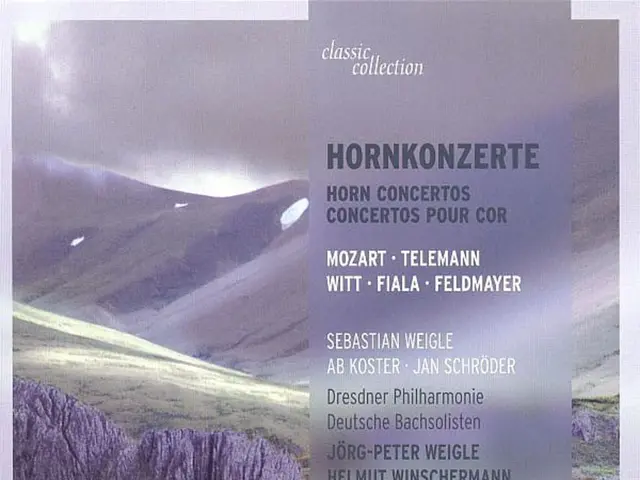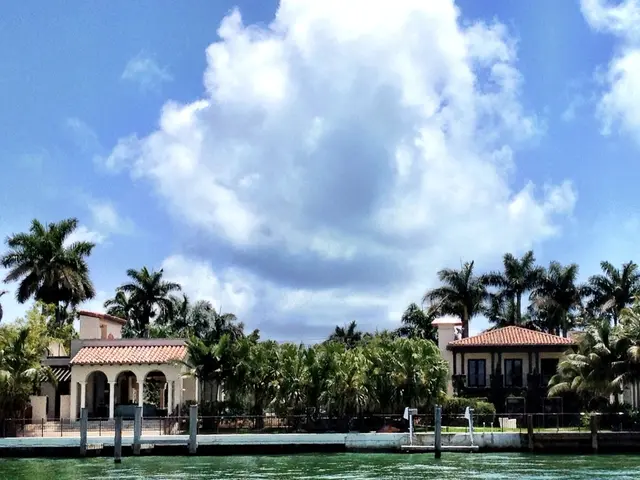Ukrainian President Zelensky present at Ukraine's transition in Berlin - Ukrainian President Volodymyr Zelenskyy present at the switch in Berlin
The upcoming meeting between President Donald Trump and Russian President Vladimir Putin in Anchorage, Alaska, has sparked concerns among European leaders. The European Union (EU) has expressed its desire to secure a cease-fire in Ukraine, obtain security guarantees for Ukraine, and ensure the EU’s role in monitoring any agreements reached between the US and Russia.
In recent developments, Trump has hinted at a possible meeting between Zelenskyj and Putin, but as of now, Zelenskyj has not been invited to Alaska. The White House has confirmed a one-on-one meeting between the two presidents.
Trump has stated that his goal in the meeting with Putin is to end the Russian war of aggression against Ukraine, which has been ongoing for about three and a half years. However, he has also expressed that the USA does not want to continue paying for the Ukrainian defensive struggle, which may not sit well with European ears.
Meanwhile, Hungary's government, led by Prime Minister Viktor Orban, has refused to co-sign a joint statement by the other 26 EU member states, welcoming Trump’s efforts to end the Russian war of aggression against Ukraine. Orban has even gone so far as to state that Zelenskyj has already lost the war against Russia.
The EU seeks to back Ukraine diplomatically in every possible way and prepare additional sanctions on Russia, but finds itself largely sidelined in the negotiations, as the summit is a bilateral US-Russia meeting excluding Ukraine and, effectively, the EU itself.
European leaders aim to prevent the United States from "falling into a trap" that might undermine Ukraine’s sovereignty and security. They stress the importance of a unified European stance on sanctions and support for Ukraine, although cracks in this unity are evident, such as Hungary's opposition to stricter sanctions and an EU-Russia summit following the Trump-Putin meeting.
The EU advocates for Ukraine's right to defend itself, including its choice regarding future alignment with the EU. They emphasize that any peace deal should include robust security guarantees to deter further Russian aggression. However, the EU is concerned about being marginalized, as the US-Russia talks exclude both European and Ukrainian leaders, creating risks that decisions about the continent’s security and Ukraine’s future might be made without their input.
The EU's position going into the summit is to maintain pressure on Russia through sanctions, uphold Ukraine’s sovereignty, and secure a diplomatic role in any peace arrangement. These objectives face challenges given the diplomatic dynamics and differing US policy signals. Key figures involved in these discussions include Germany, France, Great Britain, Italy, Finland, and JD Vance, among others. The outcome of the summit could have significant implications for the future of Ukraine and the EU's role in the region.
- In the context of the upcoming summit between President Trump and President Putin, the Commission has also adopted a proposal for a directive on the approximation of the laws of the Member States relating to the protection of workers from the risks related to exposure to carcinogens, as a part of the EU's broader policy-and-legislation agenda, aimed at safeguarding its citizens and maintaining a strong general-news stance on global issues, separate from the war-and-conflicts in Ukraine.
- As the Trump-Putin summit excludes Ukraine and, effectively, the EU itself, European leaders continue to advocate for Ukraine's right to defend itself, including its choice regarding future alignment with the EU, stressing the importance of this matter in their politics and expressing concerns about being marginalized, which could impact the continent’s security, peace agreements, and the EU's role in the region.








